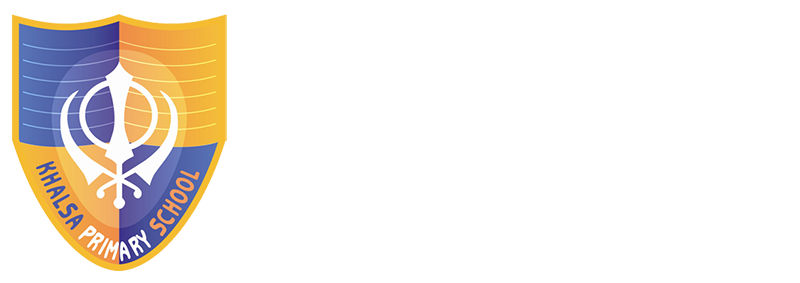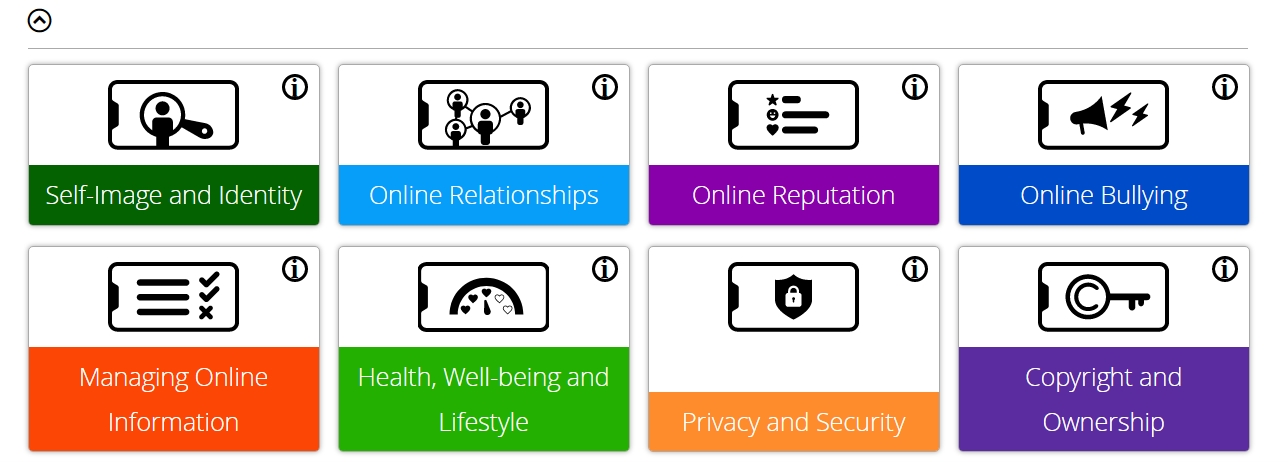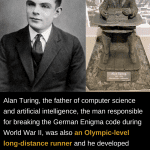Computing
OUR ASPIRATION FOR EVERY LEARNER
At Khalsa Primary School, we believe that a high-quality computing education equips pupils to use computing thinking and creativity to understand and change the world. The core of computing is computer science, in which pupils are taught the principles of information and computation, how digital systems work and how to put this knowledge to use through programming. Building on this knowledge and understanding, pupils are equipped to use information technology to create programs, systems and a range of content. Computing also ensures that pupils become digitally literate, able to use, and express themselves and develop their ideas through, information and communication – at a level suitable for the future workplace and as active participants in a digital world.
Our aim is to produce learners who are confident, discerning and effective users of technology and who also have a good understanding of computers and how computer systems work and how they are designed and programmed and to give our pupils the life-skills that will enable them to embrace and utilise new technology in a socially responsible and safe way. Within computing lessons, each child has access to the required technology, apps and support they require to develop their computational skills and understanding. We are also fortunate to be able to offer individual devices for daily use to support learning. We also take a whole-school approach for our annual Internet Safety Day – all year groups take part in planned activities which highlight the importance of why it is important to stay safe and how children can do this.
“We need to let students know there is more to Computing than controlled networking environments, they need to learn to be responsible for their actions on the computers and understand how their actions can be traced – because one day that might be the job they are doing. We need to get more girls interested and keep more boys focused and give students a much more realistic view of what Computing is all about. It is a very practical, hands on subject and we need to be reflecting this in our teaching style.”
Our Computing curriculum not only provides children with an understanding and ability to use technology safely, effectively and creatively, but it also grants them opportunities to develop crucial life skills, such as problem solving, logical reasoning and critical thinking, which are essential for a successful secondary education. Children at Khalsa, experience a 21st Century environment, utilising technology daily to support and enhance their learning; preparing them, not only for the experience of secondary education, but also for later life where they will be able to take advantage of the many careers available in these fields of study.
We are using the National Curriculum as a guide; we will deliver the computing syllabus using Purple Mash as a basis with links to the National Curriculum and Project Evolve for further support – in particular with online safety.
Project Evolve
At Khalsa, our intention is that all children are fully prepared for the technological needs of the future and for every child to become a confident digital champion. It is our mission to widen our children’s horizons through a range of opportunities. We explore innovative research and ideas through partnerships, nationally and internationally to ensure we deliver an exceptional curriculum. Our objective is to embed computing creatively in all aspects of the curriculum through providing children with continuous access to digital devices. Through this approach, children both independently and collaboratively apply computing skills to research about the world around them. We are committed to enabling our children to be able to engage critically with the online world and to be able to navigate their way, independently and safely, through a positive and secure use of information technology.
In KS1 children will be taught to:
- understand what algorithms are; how they are implemented as programs on digital devices; and that programs execute by following precise and unambiguous instructions
- create and debug simple programs
- use logical reasoning to predict the behaviour of simple programs
- use technology purposefully to create, organise, store, manipulate and retrieve digital content
- recognise common uses of information technology beyond school
- use technology safely and respectfully, keeping personal information private; identify where to go for help and support when they have concerns about content or contact on the internet or other online technologies
In KS2 children will be taught to:
Computing at Key Stage 2 is part of the national Curriculum and is made up of three key areas:
- Computer Science – i.e. programming
- Digital Literacy
- Information Technology – i.e. how computers are used in society
Each component is essential in preparing pupils to thrive in an increasingly digital world
- design, write and debug programs that accomplish specific goals, including controlling or simulating physical systems; solve problems by decomposing them into smaller parts
- use sequence, selection, and repetition in programs; work with variables and various forms of input and output
- use logical reasoning to explain how some simple algorithms work and to detect and correct errors in algorithms and programs
- understand computer networks including the internet; how they can provide multiple services, such as the world wide web; and the opportunities they offer for communication and collaboration
- use search technologies effectively, appreciate how results are selected and ranked, and be discerning in evaluating digital content
- select, use and combine a variety of software (including internet services) on a range of digital devices to design and create a range of programs, systems and content that accomplish given goals, including collecting, analysing, evaluating and presenting data and information
- use technology safely, respectfully and responsibly; recognise acceptable/unacceptable behaviour; identify a range of ways to report concerns about content and contact.
We will deliver a Computing curriculum that:
Ensures our children can:
- understand and apply the fundamental principles and concepts of computer science, including abstraction, logic, algorithms and data representation
- analyse problems in computational terms, and have repeated practical experience of writing computer programs in order to solve such problems
- evaluate and apply information technology, including new or unfamiliar technologies
- be responsible, competent, confident and creative users of information and communication technology.
All children will leave school as resilient, independent and creative thinkers with the confidence and ambition to use and develop their own interests. In doing so, they will confidently be able to use and be in touch with current technological advances. Children will leave informed about the range of careers on offer to them, equipped with the skills for those yet to be created.
WHAT WE DO TO ACHIEVE OUR ASPIRATIONS:
The Computing curriculum is monitored by the subject lead to promote continuous improvement. This is achieved through reviewing, evaluating, sharing best practices as well as undertaking continuous professional development to stay at the forefront of the ever-changing technological world. Our medium term plan emphasises the importance of collaborating with high-tech industries in order to prepare children for the future.
The Computing lead support teachers, sometimes in team-teaching sessions, in order to up-skill teachers in the delivery of the Computing curriculum. The skills and knowledge that are developed during these sessions enhances our teachers to provide a range of learning experiences in all subjects therefore giving children the opportunity to utilise technology in all areas of learning. In addition to this, regular CPD sessions and Insets further develops teacher’s subject knowledge and confidence in using a range of devices, apps and technology.
The use of Purple Mash supports on-going assessment within the subject and is used to clearly identify next steps in children’s learning as well as highlight achievements. Remote learning platform such as Purple Mash provides additional opportunities for children to engage with technology from home.
Through the delivery of a rich and varied in-school and after-school club provision our children are provided with the opportunity to nurture and develop talents and interests with clubs such as Coding on offer for the children.
The Computing curriculum provides opportunities for all children to collaborate; learn and develop skills using the characteristics of effective learning (Learning in the Deep). The children leave us with a firm foundation of subject skills that can further support other areas of learning as well as future employment. The children take risks and make mistakes; understanding how to debug and revaluate before completing a task. Our creative Computing curriculum has developed confident problem-solvers who are empowered and skilful to strive for excellence in all that they do.
- Children will be confident users of technology, able to use it to accomplish a wide variety of goals, both at home and in school.
- Children will have a secure and comprehensive knowledge of the implications of technology and digital systems. This is important in a society where technologies and trends are rapidly evolving.
- Children will be able to apply the British values of democracy, tolerance, mutual respect, rule of law and liberty when using digital systems.
Children embody the Khalsa Values of Kindness, Honesty, Aspiration, Love and Service as they delve into the technological world. They are creative and aspire to taking risks and helping others in their use of technology to drive their learning, and debugging when necessary, responsible and honest when using technology and having an online presence and kind to the ever changing world. Children leave Khalsa with a deep love and appreciation for the lifelong development of Computational Skills and Knowledge.
Our Computing curriculum is age appropriate, well thought out and is planned to demonstrate progression across the three main Computing pillars. If children are keeping up with the curriculum, they are deemed to be making good or better progress. The lessons are engaging and allow them to become resilient and resourceful learners. At the start of the year, children complete an online safety agreement as well as a user agreement.
The Computing curriculum is led and overseen by the Computing curriculum lead. They will regularly, monitor, evaluate, and review Computing teaching and learning, celebrating and sharing good practice. The National Curriculum and the Early Years Foundation Stage statuary framework will provide the basis of the Computing curriculum which is then tailored to meet the learning and developmental needs of the children at Khalsa.
We utilise Purple Mash to develop subject knowledge to assist in planning engaging lessons. Purple Mash lessons are all based on the National Curriculum, which focus on curriculum skills of information technology, digital literacy and computer science. Units of work comprised of a series of lessons, which carefully plans for progression and depth. Access to a wide variety of hardware (laptops, desktops, Learnpads) and software, allowing them to continually practice and improve the skills they learn, while also becoming proficient, confident users ready for the digital world. We support parents and carers to have secure knowledge in online safety at home. Staff understands the importance of online safety and has had training to support this.
WHAT WE DO TO MEASURE OUR SUCCESS
In Computing, we will measure progress through teacher discussions and communication; children are independently able to assess their knowledge so we can measure the impact of our curriculum through the following methods:
- A reflection on standards achieved against the planned outcomes.
- A celebration of learning by sharing their work on displays and in newsletters and social media.
- Children are able to understand and communicate the consequences of using the Internet and that they are also aware of how to keep themselves safe online.
- Retaining their knowledge and articulating their understanding with confidence.
- Tracking of knowledge via saved work on Purple Mash and in own learning spaces.
- Pupil discussions about their learning, demonstrating a love for the subject and interest in developing their skills further independently and achieve beyond age related expectations in Computing.
The successful approach at Khalsa results in a fun, engaging, high-quality Computing education that provides children with the foundations and knowledge for understanding the world of technology. Through various workshops, trips and interactions with experts, taking inspiration of role models such as Alan Turing, children have the understanding that technology has changed our lives and that it is vital to the world’s future prosperity.
We want our pupils to be able to operate in the 21st century workplace and we want them to know the career opportunities that will be open to them if they study computing. We want children to become independent users of computing technologies, gaining confidence and enjoyment from their activities. We want the use of technology to support learning across the curriculum and to ensure that our curriculum is accessible to every child. Not only do we want them to be digitally literate and competent end-users of technology but through our computer science lessons we want them to develop creativity, resilience and problem solving and critical thinking skills. We want our pupils to have a breadth of experience to develop their understanding of themselves as individuals within their community but also as members of a wider global community and as responsible digital citizens.
In Early Years, teaching is based around computational thinking to encourage effective, analytical problem solving, whether using computers or not. Tools and technology, such as interactive whiteboards, beebots and iPads are often available during continuous provision to allow learners to explore their own ideas of computing and technology through play. Children also begin to learn basic typing skills.
In KS1, the teaching of computing is developed through the wide range of experiences the children were given in EYFS. In Year One, children are able to deepen their knowledge of coding through the use of beebots. Children are able to develop their understanding of computing science and data representation by exploring pictograms and graphs- which sparks their creativity and productivity.
Alan Turing: Bletchley Park
Resources to further support teaching and learning
1) Project Evolve: https://projectevolve.co.uk/
2) Play list of CAS (Computing at School)’s youtube channel with 59 videos to support teachers with videos in some areas of the curriculum: https://www.youtube.com/playlist?list=PLfZL5AW0loWkY0Glnykgv5TVdxqanDOwc
3) Barefoot Computing: https://www.barefootcomputing.org/
4) CAS – Digital Parenting https://www.youtube.com/watch?v=p7iKtDrUFGY
5) CAS – Unplugged activities for KS1 and KS2 https://www.youtube.com/watch?v=S2dC_Scz2Ow
6) CAS – Early Years activity-ideas https://www.youtube.com/watch?v=xWDNywCCoLE
7) Check a safe site before visiting: https://www.getsafeonline.org/checkawebsite/
8) https://www.womenintech.co.uk/the-history-of-women-in-tech


